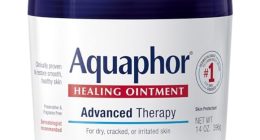
Opinions expressed by Entrepreneur contributors are their own.
You’re reading Entrepreneur India, an international franchise of Entrepreneur Media.
It’s all about the right timing. Understanding the current trends and pressing the fast forward button to pilot projects can script success stories; failure to spot these trends can end up as big misses. FMCG companies are on an acquisition spree. Spotting the future trends, these heavyweights are venturing into new categories and setting benchmarks.
Competing directly with category leaders such as Coca-Cola and PepsiCo, Reliance Consumer Products (RCPL), the FMCG arm of Reliance Retail Ventures Limited, has relaunched the homegrown cola brand Campa Cola. The brand will be made available first in Andhra Pradesh and Telangana, and rolled out across the country in stages. RCPL has also announced it will acquire a 50 per cent equity stake in Gujarat-headquartered Sosyo Hajoori Beverages Pvt Ltd (SHBPL), which owns and operates a beverage business under the flagship brand ‘Sosyo’. The existing promoters, Hajoori family, will continue to own the remaining stake in SHBPL.
“Reliance Retail has been scouting for beverage brands. Reliance Retail will be able to utilize Sosyo’s expertise in formulations to create unique value propositions for its product portfolio and enhance its offering in the beverages space for its consumers,” quoted ICICIdirect Research.
This is not an isolated case. In January, ITC Limited announced its plans to acquire D2C health food brand Yoga Bar, a healthy snack startup, based in Bengaluru. The FMCG giant will acquire 100 per cent of Sproutlife Foods Private Limited (SFPL) over a period of three to four years.
Yoga Bar’s product portfolio includes nutrition bars, muesli, oats and cereals. The brand is also expanding its offline presence. “We believe that this investment is an exciting opportunity that aligns with ITC’s Foods business’ aspiration to build a formidable portfolio in the nutrition-led healthy foods space. We look forward to scaling the Yoga Bar brand offering superior and healthy consumer choices,” said Hemant Malik, divisional chief executive, foods division, ITC Limited in a previous statement.
Similarly, Dabur acquired the legacy brand, Badshah Masala, last year. Since then Badshah Masala has overhauled its product range and has added new products like quality spices and spice mixes to its portfolio. Dabur signed definitive transaction agreements to acquire 51 per cent shareholding of Badshah Masala. This acquisition is in line with Dabur’s strategic intent to expand its foods business to INR 500 crore in three years and expand into new adjacent categories. This also marks Dabur’s entry into the over INR 25,000 crore branded spices and seasoning market in India.
In order to boost its health & wellness products portfolio, Hindustan Unilever Limited (HUL) has made acquisitions in the category. HUL completed the 51 per cent acquisition of Zywie Ventures Pvt Ltd for INR 264.28 crore for the first tranche of the acquisition. In December, HUL announced plans to acquire 100 per cent in Zywie Ventures (Oziva) in two tranches with 51.00 per cent of the shareholdings to be acquired in the first purchase and the remaining 49.00 per cent to be acquired in the second tranche. According to a regulatory filing, HUL also acquired a 19.8 per cent stake in health and wellbeing firm Nutritionalab Private Limited for INR 70 crore.
Well, not all deals end up materializing, some fall through. The Tata conglomerate was in talks to acquire India’s largest packaged water company Bisleri. The deal estimated at about INR 6,000-7,000 crore has fallen through and Tata Consumer Products Ltd announced that the discussions with Bisleri for a potential acquisition have ceased.
Will deal momentum soar in 2023? “Interestingly, amidst the uncertainty prevalent within 2022, India witnessed a record total M&A deal value of $152 billion. Thus, it is safe to say that the future of inbound M&A activity in India is ripe and will only bolster the country’s economic growth,” quoted The National Law Review in its earlier report.
This article is from Entrepreneur.com









